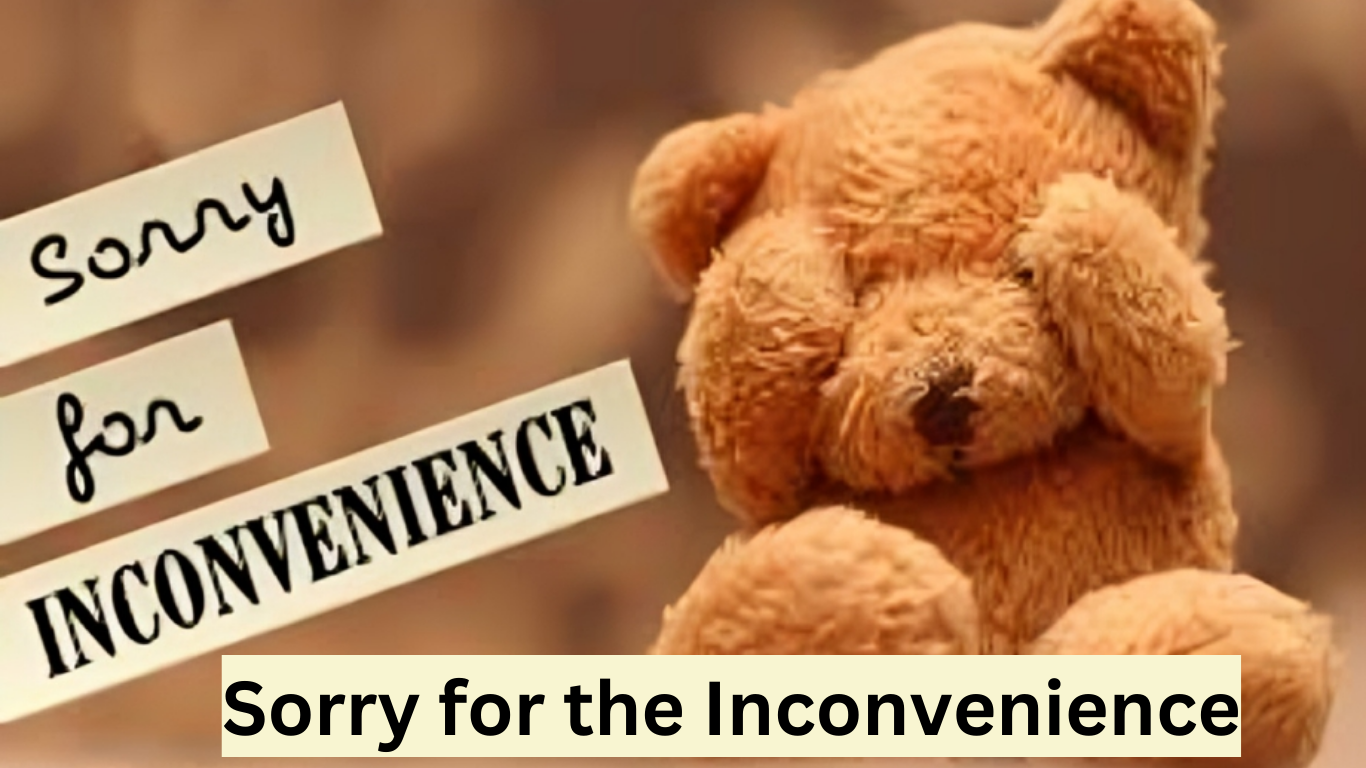In the realm of customer service and everyday interactions, the phrase “sorry for the inconvenience” holds significant weight. It’s a simple acknowledgment of an inconvenience caused to someone, yet it carries a powerful message of empathy and accountability. In this article, we’ll delve into the importance of apologies, explore various contexts where this phrase is commonly used, and discuss strategies for effectively addressing inconveniences. Let’s navigate through the intricacies of apologies and their impact on relationships, businesses, and society.
Sorry for the Inconvenience: The Significance of Apologies

Explore the Significance of Apologies: Understanding the Impact of ‘Sorry for the Inconvenience.’ Apologies are vital tools in human interaction, serving as acknowledgments of fault, expressions of remorse, and bridges to mend relationships. The phrase ‘Sorry for the inconvenience’ reflects a commitment to addressing disruptions and errors, particularly in customer service and business contexts. Beyond mere words, sincere apologies demonstrate humility and a genuine desire to rectify situations, fostering understanding and reconciliation. This informative paragraph delves into the importance of apologies in various settings, highlighting their role in acknowledging wrongdoing, demonstrating empathy, and fostering positive outcomes.
Empathy in Communication
The Role of Empathy in Communication. Apologies serve as an acknowledgment of discomfort or inconvenience caused to others, often stemming from a lack of understanding or empathy. Incorporating empathy into communication can help prevent such instances by fostering deeper connections and mutual understanding. Empathy involves actively listening to others, recognizing their emotions, and responding with compassion. By practicing empathy, individuals can enhance their communication skills, build stronger relationships, and minimize the need for apologies. This concept highlights the importance of empathy in navigating interpersonal interactions and reducing instances of inconvenience or discomfort.
Apologies in Customer Service
The Significance of Apologies in Customer Service. Apologies in customer service acknowledge and address customer inconvenience, fostering satisfaction and positive interactions. Apologies in customer service not only help mitigate negative experiences but also contribute to building trust and loyalty with customers. By recognizing and taking responsibility for any shortcomings, businesses can uphold their reputation and foster positive relationships with their clientele.
FAQs
How important are apologies in human interaction?
Apologies are crucial in human interaction as they acknowledge fault, express remorse, and bridge relationships, fostering understanding and reconciliation.
What message does “sorry for the inconvenience” convey?
“Sorry for the inconvenience” reflects accountability and empathy, showing a commitment to addressing disruptions and errors, especially in customer service and business contexts.
How does empathy influence communication?
Empathy in communication helps prevent instances of inconvenience or discomfort by fostering deeper connections and mutual understanding, involving active listening, recognizing emotions, and responding with compassion.
Why are apologies significant in customer service?
Apologies are vital in customer service interactions as they acknowledge and address customer dissatisfaction or inconvenience, demonstrating empathy and a commitment to resolving issues promptly, thereby building trust and loyalty.
Is there a limit to using “sorry for the inconvenience” in customer service?
The frequency of using this phrase depends on the severity of the inconvenience and the length of the interaction, with a balance needed between acknowledging the inconvenience and offering practical solutions.
Conclusion
In conclusion, the phrase “sorry for the inconvenience” encapsulates the essence of empathy, accountability, and reconciliation. A genuine apology can mend bonds, restore faith, and nurture positive relationships in personal and professional settings. Understanding apologies and empathetic communication helps navigate challenges with grace, fostering integrity and resilience. Next time you need to apologize, consider the power of saying “sorry for the inconvenience’s.”


